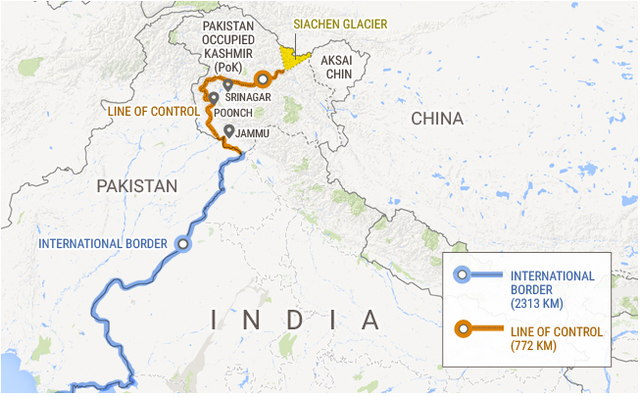Indian and Pakistani troops exchanged gunfire for a second straight night along the disputed Kashmir frontier, officials said Saturday, deepening a crisis that has engulfed the two nuclear-armed neighbors following a deadly attack on Indian tourists.
The Indian Army said its forces responded to "unprovoked" small arms fire that erupted around midnight Friday from multiple Pakistani posts across the 740-kilometer Line of Control. Indian authorities reported no casualties and said troops returned fire appropriately. Pakistan's military did not immediately comment, and battlefield reports could not be independently verified.
The renewed clashes follow an April 22 attack near the resort town of Pahalgam in India-administered Kashmir that killed 26 people, most of them Indian tourists. Indian officials blamed Pakistani-backed militants, while Islamabad denied involvement and called for an international investigation. A previously unknown group calling itself the Kashmir Resistance claimed responsibility for the assault.
Tensions have spiraled since the attack, with both countries taking retaliatory steps. India suspended the 1960 Indus Waters Treaty that governs water sharing from the Indus River and revoked visas issued to Pakistani nationals. Pakistan responded by closing its airspace to Indian airlines, canceling visas for Indian citizens, and halting trade.
Pakistani Prime Minister Shehbaz Sharif warned Saturday that Islamabad would respond "with full force and might" to any Indian attempts to block water flows into Pakistan. Officials in Pakistan-administered Kashmir also accused India of suddenly releasing large volumes of water into the Jhelum River, raising fears of potential flooding.
Markets remained open and life largely undisturbed in Pakistan's portion of Kashmir, although residents living along riverbanks were advised to evacuate.
India, meanwhile, intensified a crackdown across the Kashmir Valley, detaining at least 1,500 people for questioning, according to police officials. Indian forces also detonated explosives in homes of suspected militants, a tactic often employed in anti-insurgency operations, causing collateral damage to surrounding houses.
International reactions to the crisis were mixed. Iran's foreign minister, Syed Abbas Araghchi, offered to mediate, writing that Tehran "stands ready to use its good offices in Islamabad and New Delhi to forge greater understanding." U.S. President Donald Trump, traveling aboard Air Force One, said he expected India and Pakistan to "figure it out" and declined to say if he would personally intervene.






